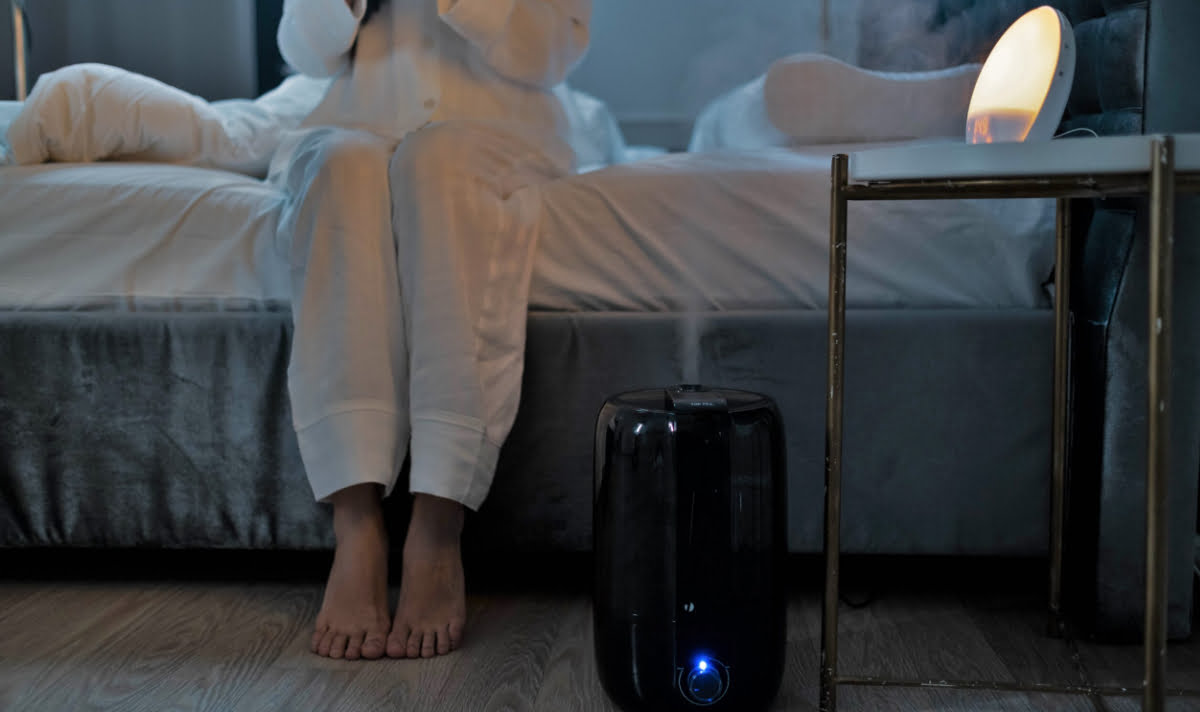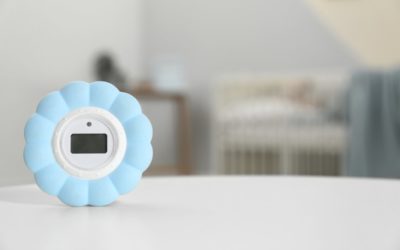Prepare for the winter months by following our tips to create the ideal humidity levels and the perfect cosy bedroom environment with the right temperature and humidity.
What is the ideal humidity in house UK?
To keep things comfortable, the ideal bedroom humidity for sleeping should be 30% – 50%. When humidity levels are too low, this can lead to dry air. Cranking the heating up too high for too long can exacerbate this, leading to irritated nasal passages, sneezing, coughing, itchy throat, and possibly increased suffering from colds and other viruses.
Why Low Humidity in Winter Can Be a Problem
When humidity drops below 30%, your bedroom air becomes excessively dry. This is common during autumn and winter when we rely more on indoor heating. Prolonged exposure to dry air can cause:
- Irritated nasal passages
- Dry throat and persistent coughing
- Sneezing and itchy eyes
- Increased susceptibility to colds and respiratory viruses
- Disrupted, uncomfortable sleep
Imagine it like an engine running without oil—dry air can irritate your airways, making it harder to breathe comfortably through the night.
How to increase humidity in your bedroom naturally
If your bedroom feels dry in the colder months, try these tips to raise indoor humidity safely:
- Use a humidifier to add moisture to the air.
- Open windows briefly, even during winter, to allow fresh air and reduce dryness caused by constant heating.
- Place houseplants in the bedroom – they naturally release moisture and improve air quality.
- Open your bathroom door after a hot shower to let steam spread through the house.
- Dry laundry wisely – avoid over-drying clothes indoors without ventilation or use of a dehumidifier.
Watch out for high humidity levels in the bedroom too
On the flip side, too much humidity (over 60%) can also create an unhealthy sleep environment. Trapped moisture from indoor heating, closed windows, or drying clothes inside can lead to:
- Condensation on windows
- Damp smells
- Mould and mildew growth
- Poor air quality that disrupts sleep
If you’re experiencing these signs, invest in a dehumidifier to bring humidity levels back into the optimal range. It’s also helpful to:
- Ventilate your bedroom regularly
- Avoid drying clothes in small rooms
- Use moisture-absorbing materials in wardrobes and corners
Extra Tips for Better Sleep Comfort in Autumn & Winter
- Switch to breathable cotton bedding and nightwear to regulate body temperature and reduce discomfort from excess moisture.
- Check your mattress and pillows – some materials are more breathable and resistant to humidity-related issues like mould.
- Keep a humidity monitor in the bedroom to stay on top of changes and adjust your environment accordingly.
Creating the ideal bedroom climate goes beyond just setting the thermostat. Maintaining proper humidity levels is key to ensuring a healthy, comfortable, and restorative night’s sleep—especially during autumn and winter.
By taking a few simple steps to manage moisture and airflow, you’ll protect your health, improve sleep quality, and enjoy a cosier, more welcoming bedroom all season long.
First published 16.01.23, republished 01.10.24






0 Comments